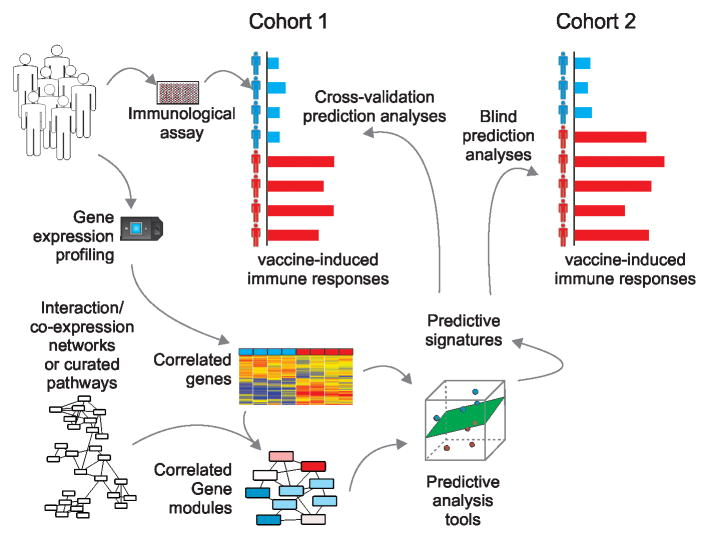Systems vaccinology: Enabling rational vaccine design with systems biological approaches.
Vaccines have drastically reduced the mortality and morbidity of many diseases. However, vaccines have historically been developed empirically, and recent development of vaccines against current pandemics such as HIV and malaria has been met with difficulty. The advent of high-throughput technologies, coupled with systems biological methods of data analysis, has enabled researchers to interrogate the entire complement of a variety of molecular components within cells, and characterize the myriad interactions among them in order to model and understand the behavior of the system as a whole. In the context of vaccinology, these tools permit exploration of the molecular mechanisms by which vaccines induce protective immune responses. Here we review the recent advances, challenges, and potential of systems biological approaches in vaccinology. If the challenges facing this developing field can be overcome, systems vaccinology promises to empower the identification of early predictive signatures of vaccine response, as well as novel and robust correlates of protection from infection. Such discoveries, along with the improved understanding of immune responses to vaccination they impart, will play an instrumental role in development of the next generation of rationally designed vaccines.
Authors
Thomas Hagan; Helder I Nakaya; Shankar Subramaniam; Bali Pulendran
External link
Publication Year
Publication Journal
Associeted Project
Systems Vaccinology
Lista de serviços
-
Is the gut microbiome key to modulating vaccine efficacy?Is the gut microbiome key to modulating vaccine efficacy?
-
Toxicogenomic and bioinformatics platforms to identify key molecular mechanisms of a curcumin-analogue DM-1 toxicity in melanoma cells.Toxicogenomic and bioinformatics platforms to identify key molecular mechanisms of a curcumin-analogue DM-1 toxicity in melanoma cells.

